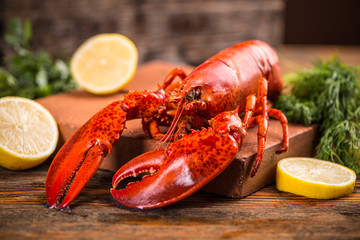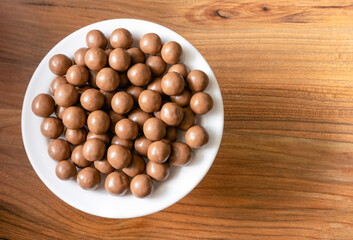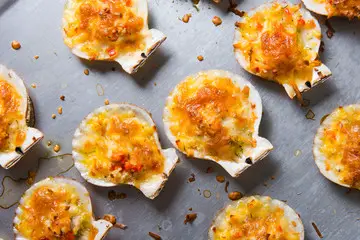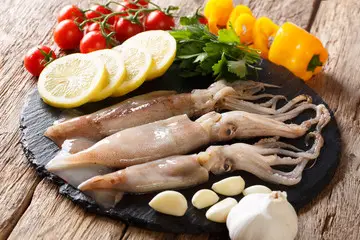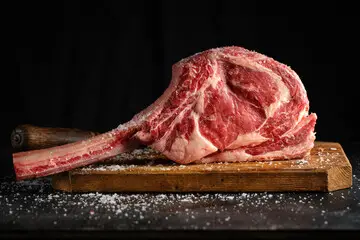
In Islam, the concept of halal refers to actions, behaviors, and consumables that are permissible or allowed under Islamic law. The opposite of halal is haram, which refers to actions, behaviors, and consumables that are prohibited or forbidden in Islam. This concept applies to a wide range of areas in Muslim life, including dietary practices, financial transactions, and personal conduct.
For Muslims, following halal dietary guidelines is an important aspect of their faith. These guidelines are based on the teachings of the Quran and the Hadith (sayings and actions of the Prophet Muhammad), as well as the consensus of Islamic scholars. According to Islamic law, all food is considered halal unless it is explicitly prohibited.
There are several specific guidelines that Muslims must follow when it comes to food. For example, meat must come from animals that have been slaughtered in a specific way (known as “zabihah” or “dhabiha”), and all blood must be drained from the animal before it is consumed. Pork and alcohol are among the foods that are specifically prohibited in Islam.
Following halal dietary guidelines is considered a way for Muslims to show obedience to God and to lead a virtuous and pure life. It is also seen as a way to maintain physical and spiritual purity and to protect the health and well-being of the individual and the community.
Is Veal Haram?
There is some debate among Muslims about whether veal is considered halal or haram. Some Muslims argue that veal is halal because it meets the requirements for halal meat, including being slaughtered in the prescribed manner (zabihah or dhabiha) and having all of the blood drained from the animal.
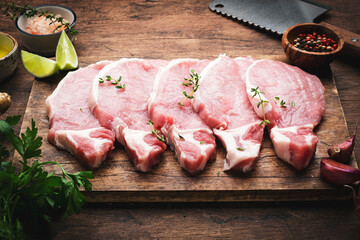
Others argue that veal is haram because of the way it is produced. They argue that the treatment of veal calves, including confinement in veal crates and a restricted diet, is cruel and causes unnecessary suffering.
Some Muslims argue that the suffering and mistreatment of animals are not in line with the principles of compassion and respect for life that are central to Islam and that consuming veal, therefore, goes against the values of their faith.
Ultimately, the decision on whether to consume veal or not is a personal one that depends on an individual’s understanding of Islamic teachings and their own values and beliefs. Some Muslims may choose to avoid veal due to concerns about animal welfare, while others may consider it to be permissible food. It is important for Muslims to carefully consider the relevant Islamic teachings and make a decision that aligns with their own values and beliefs.
Arguments for Veal Being Halal:
- Veal meets the requirements for halal meat, including being slaughtered in the prescribed manner (zabihah or dhabiha) and having all of the blood drained from the animal.
- The age or size of an animal does not necessarily determine whether it is halal or haram. What is important is that the animal is treated humanely and slaughtered in a manner that is consistent with Islamic teachings.
- Some proponents of veal argue that it can be produced in a way that is humane and ethical, and that this is more important than the age or size of the animal.
- Some Muslims argue that avoiding certain foods, such as veal, may not be practical or possible in certain circumstances, and that it is more important to focus on upholding other important values, such as compassion and kindness towards others.
Arguments for Veal Being Haram:
- The treatment of veal calves, including confinement in veal crates and a restricted diet, is considered cruel and causes unnecessary suffering.
- The suffering and mistreatment of animals are not in line with the principles of compassion and respect for life that are central to Islam, and consuming veal, therefore, goes against the values of the faith.
- The young age and small size of veal calves make them more vulnerable to mistreatment and suffering, and this is not acceptable according to Islamic teachings.
- Some Muslims argue that it is not sufficient to simply ensure that the animal is slaughtered in a halal manner; the conditions in which the animal is raised and treated must also be taken into consideration.
Can You Get Halal Veal?
It is possible to get halal veal, although it may be more difficult to find compared to other types of halal meat such as chicken or lamb. In order for veal to be considered halal, it must be slaughtered in the prescribed manner (zabihah or dhabiha) and have all of the blood drained from the animal. Some Muslims may also consider the conditions in which the animal is raised and treated when deciding whether to consume veal.
There are a few options for Muslims who want to purchase halal veal:
- Look for halal-certified veal: Some halal certification organizations offer certification for veal that meets the requirements for halal meat. These organizations may inspect the slaughtering process and the conditions in which the animals are raised to ensure that they meet halal standards.
- Purchase veal from a local farmer or producer who follows halal practices: Some small farmers and producers may raise and slaughter their animals in a way that is consistent with halal guidelines. Contacting a local farmer or producer directly may allow you to learn more about their practices and find out if they offer halal veal.
- Check with your local halal market or butcher: Many halal markets and butchers carry a variety of halal meats, including veal. They may be able to provide more information about the source and practices of the veal they offer.
It is important to note that the availability of halal veal may vary depending on your location. Some areas may have more options for halal veal, while others may have fewer options or none at all.
What Kind of Meat Is Veal?
Veal is a type of meat that comes from young cows, typically those that are between the ages of three and twelve months. Veal calves are usually male, as female calves are often kept for breeding purposes.
Veal is produced by raising calves in a specific way in order to produce meat that is tender, pale, and lean. This typically involves keeping the calves in confined spaces, often called “veal crates,” which are designed to restrict their movement and prevent them from exercising. The calves are also fed a special diet that is low in iron and fiber and high in protein, in order to promote the development of lean muscle tissue. This diet often consists of milk or milk replacer, as well as grains and supplements.
The production of veal has been controversial, as the conditions in which the calves are raised and the methods used to produce the meat have been criticized as inhumane. Some animal welfare groups have called for a ban on the production of veal, arguing that the treatment of veal calves is cruel and causes unnecessary suffering. Others, however, argue that veal production can be done in a humane and ethical manner, and that veal can be a valuable source of nutrition and a sustainable protein source.
What Is the Islamic Ruling on Eating Veal?
According to Islamic law, veal is considered an acceptable source of nutrition. This is provided that the animal has been slaughtered according to Islamic law, also known as dhabīḥah. As with all animals slaughtered for consumption, the animal must be treated with respect, and the slaughter must be done swiftly and with a sharp instrument.
Furthermore, the animal must be slaughtered by a Muslim, or someone of the same faith, who will intone a blessing as the slaughter is carried out. The blood must then be drained from the animal, and the meat must be prepared according to Islamic dietary etiquette. Ultimately, veal is deemed an acceptable source of nutrition, provided it is slaughtered and prepared according to Islamic law.
Conclusion
In summary, the question of whether veal is halal or haram in Islam is a complex one, with different opinions and perspectives on the topic. Some Muslims argue that veal is halal because it meets the requirements for halal meat, including being slaughtered in the prescribed manner and having all of the blood drained from the animal. Others argue that veal is haram because of the way it is typically produced, which they argue causes unnecessary suffering and is not in line with the principles of compassion and respect for life that are central to Islam.

Hi, I’m Iolanda I am a mother of two and know how to whip up satisfying dishes for friends and family in a seemingly effortless way. The blog goal is reader-oriented, So We are always looking for the newest information about the best products on the market to offer product reviews and tutorials to assist users.Have Fun on The Website

